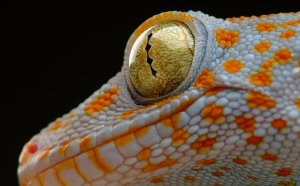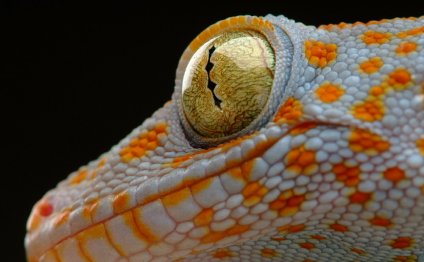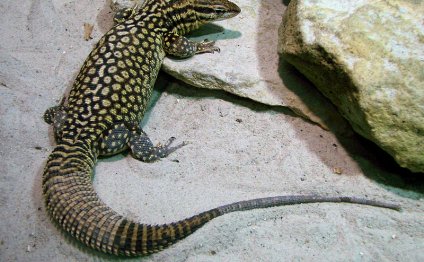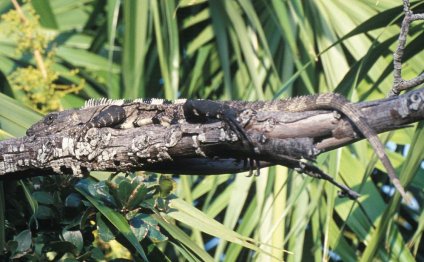
Pet stores that sell iguanas
Green Iguanas are one of the top “disposable pets” in the world - which means they are often disposed of when the owners tire of caring for them or when the owner feels they have grown too large for their home.
AVERAGE SIZE:
Males - up to 6 feet; females - slightly smaller
CAGE TEMPS:
Day temps - 80-85℉
Basking area - 90-95℉
Night temps - 72-75℉
*If temp falls below 70℉ at night, may need supplemental infrared or ceramic heat.
WILD HISTORY:
Native to Central & South America and the Caribbean. Feral populations also exist in South Florida (including the Florida Keys), Hawaii, the U.S. Virgin Islands, the Grand Cayman Islands and the Rio Grande Valley of Texas. A small released or escaped colony also exists in Fort St. Louis. Green iguanas live in forest areas that are adjacent to water.
PHYSICAL ATTRIBUTES:
Green Iguanas are long, slim bodied lizards (for their size) with tails that are usually longer than the lizard’s body itself. The long, strong tail can be whipped as a defense mechanism. If broken, the tail can regenerate itself, although never to the full beauty and strength of the original one. Iguanas are excellent swimmers; using the muscle and power of the tail, they propel themselves through the water with it, never using the legs to paddle or stroke. The toes of the iguanas are also long and have sharp claws for climbing trees. Iguanas are diurnal (active during the day) and arboreal (tree dwelling), however, they are also known to stay on the ground for extra warmth during cold weather. A healthy iguana generally ranges from a bright green to dark brown in color, depending on the species and sex of the animal. However, some sub-species can be blue, lavender, black or even pink, although these species are not available in the pet trade. The spikes that run along the back from the head to the tip of the tail help protect the iguana from predators. The dewlap (flap of skin hanging down from the chin and neck) helps regulate body temperature and aid in courtship displays. Green iguanas have a white photo-sensory organ on the top of their heads called the parietal eye. Unlike a normal eye, the parietal eye can only detect light & movement, but it can help the iguana “see” predators that may be approaching from above. Green iguanas have very sharp teeth lining the inner jawbone of both top and bottom jaws, similar to those of the extinct dinosaur, “Iguanadon”, which is where their name comes from.
NORMAL BEHAVIOR & INTERACTION:
Iguanas can be very difficult to train and therefore handle, which can sometimes make them challenging pets to own. Many people who buy iguanas when the iguana is a baby do not realize how big and powerful their small pet will become. Iguanas, especially males, can become aggressive and do have the ability to cause considerable damage with a bite. Do NOT purchase an iguana unless you are prepared to provide a large, roomy cage (8’ x 8’). A baby iguana may do fine in a large glass tank, but WILL outgrow it within a year’s time. Iguanas are not domesticated animals. In order to train your pet properly, you will need to devote much time to handling and training. Continuous handling and training on a daily basis can help ensure that your little baby does not easily revert back to its wild ways, but there is no guarantee. When picking up your pet, move slowly and carefully so that you do not scare him. Do NOT pick up your pet by the tail. Gently scoop him up under the belly, letting the feet dangle alongside your arm, and support the tail. Stroke your pet gently.
In nature, males become territorial and can engage in ritualized dominance struggles. Females may also have trouble getting along. For this reason, it is easiest for the pet owner to keep only one per enclosure.
Housing male iguanas together will create a dominant/submissive hierarchy and will result in one lizard becoming stressed to the point of illness, anorexia, and possibly death. Male iguanas also tend to be extremely aggressive toward one another and will fight, sometimes to the death. Female iguanas may be housed together IF there is ample space and food for each lizard. Considering the fact that one iguana needs and 8’ x 8’ space, two females will need more room than most keepers can provide.
Males and females should NOT be housed together, as the male iguanas may continually try to mate with the females; leaving the females exhausted, aggravated, and stressed. The female may stop eating and become extremely ill. Again, with enough room and supplies, this can be avoided, but the amount of room needed is most often prohibitive.
NOTE: Green iguanas should not be housed with lizards of another species.
Green iguanas can be very lethargic and lazy. They will choose the highest perch in their enclosure and often lie on it with all four legs hanging down.
FEEDING:
Green Iguanas are completely herbivorous.
Green iguanas require a precise ratio of minerals (2 to 1 calcium to phosphorus) in their diet. Iguanas should be fed a large fresh salad and fresh water every single day. The best fruits and vegetables for green iguanas are the following: Green beans, alfalfa (rabbit pellets), acorn squash, butternut squash, cactus leaves, collard greens, dandelion greens, endive (when mixed with other greens), mango, mustard greens, okra, papaya, parsnips, snap peas, turnip greens and watercress. If fed a steady diet of these selections, your iguana will be eating optimally. Be sure to feed a variety.
Juvenile iguanas often eat feces from adults in order to acquire the essential microflora to digest their low-quality and hard to process vegetarian diet.
RELATED VIDEO

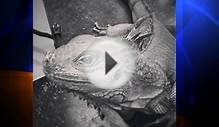
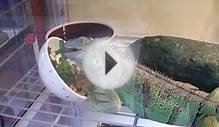
Share this Post
Related posts
Colorful lizard
A very large species of chameleon that is endemic to forests in eastern and northern Madagascar. They reach up to 68 cm (27…
Read MorePet stores that sell tortoises
People love their turtles and tortoises so consequently the number of people owning them is jumping every year. This is good…
Read More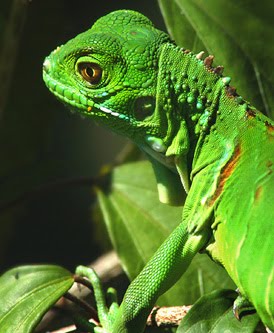 The Green Iguana or Common Iguana (Iguana iguana) is a large, arboreal herbivorous species of lizard of the genus Iguana native to Central, South America, and the Caribbean. The green iguana ranges over a large geographic area, from southern Brazil and Paraguay as...
The Green Iguana or Common Iguana (Iguana iguana) is a large, arboreal herbivorous species of lizard of the genus Iguana native to Central, South America, and the Caribbean. The green iguana ranges over a large geographic area, from southern Brazil and Paraguay as...
